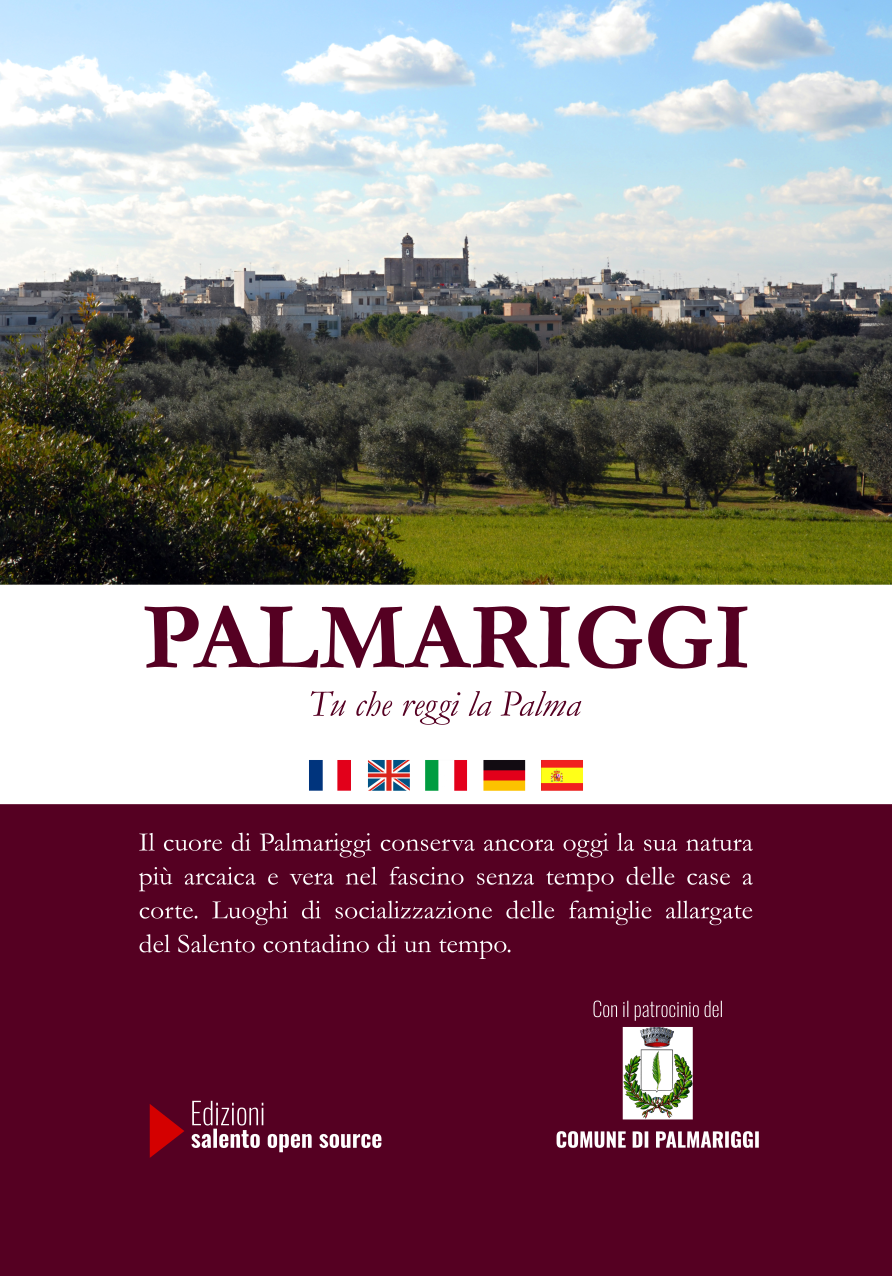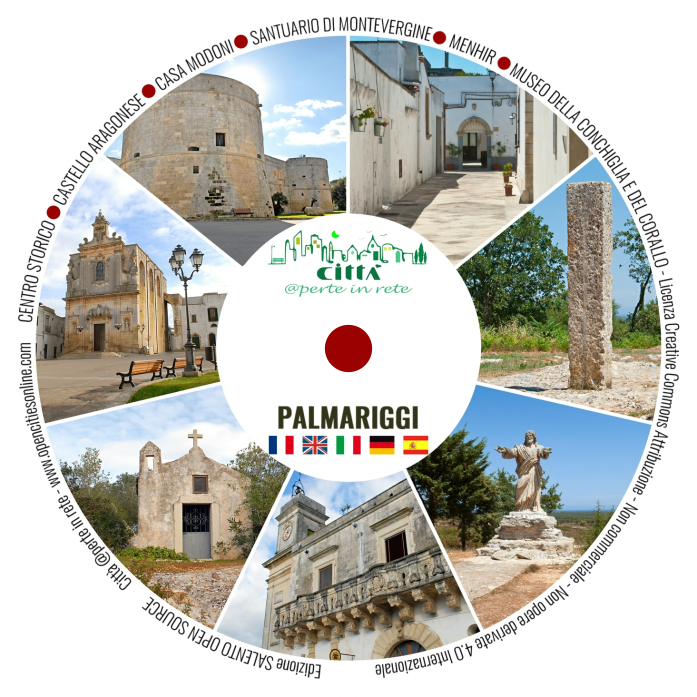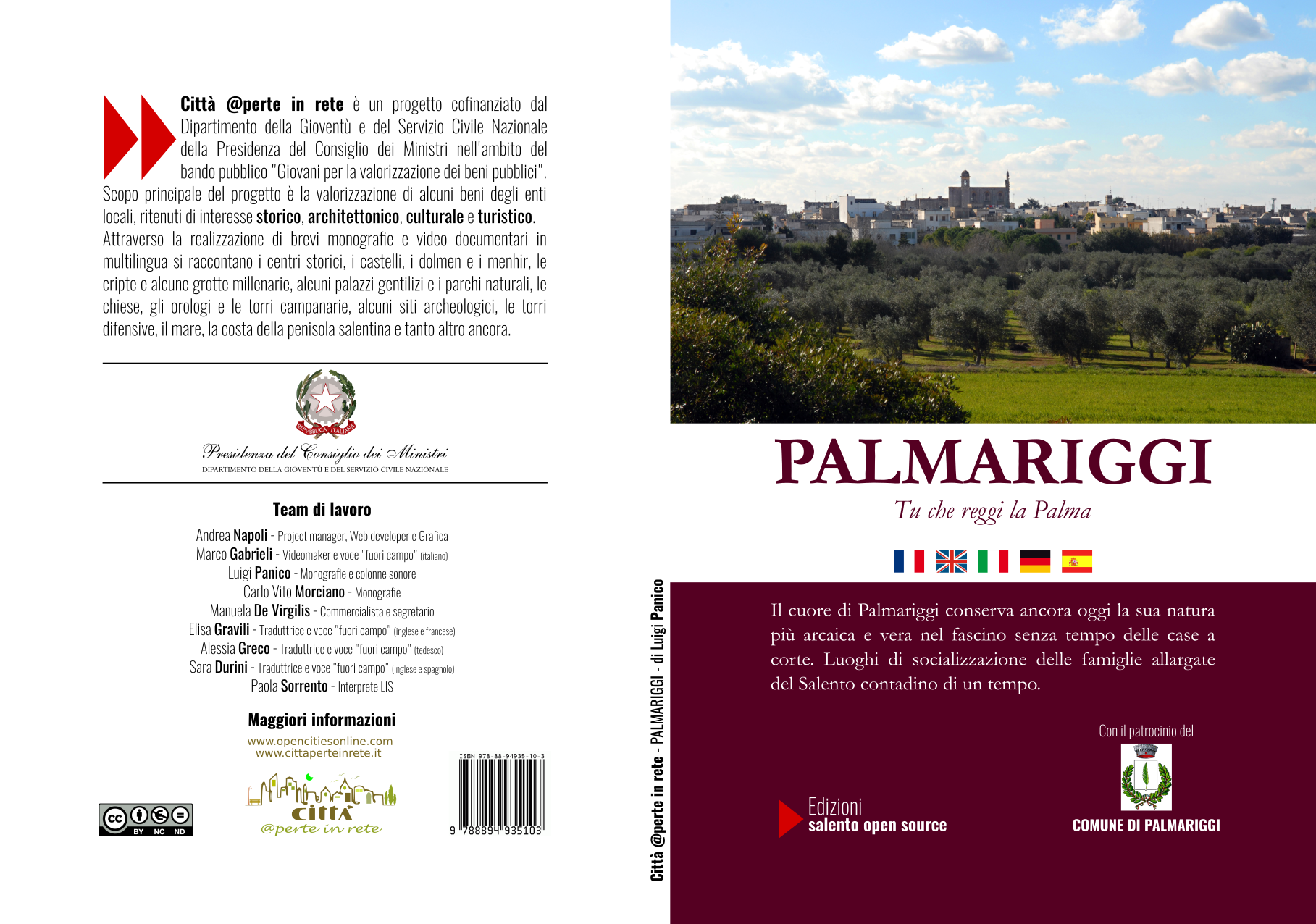City of Palmariggi
Salento Open Source, a product publisher, is a nonprofit association that does not carry on business. Your donation is important for continuing this activity.
Monograph Palmariggi
- Historic Centre
- Aragonese Castle
- Modoni House and Clock Tower
- San Luca Evangelista Church
- Church of Madonna della Palma
- The shell and coral museum
- Chapel of the Madonna of Contantinople
- Montevergine
PALMARIGGI
Situated in the very heart of the Salento, Palmariggi is an authentic jewel less than 10 km from the Adriatic Sea. In ancient times, the territory of Palmariggi was governed by a variety of feudal lords, though we don’t have firm knowledge of its past until 1463 when it became the property of the Aragonese. They constructed a fort to defend the surrounding territories and Otranto from enemy attacks. After that, the town was known as “Casale San Nicola.”
In 1480, after the Turkish invasion and conquest of Otranto, the village became the main character in a wondrous miracle: just days before the Saracen attack on the fort, not far from today’s Monte Iuzzo, the Virgin appeared and led a brigade of warriors with a palm frond in her hand. The Turkish army, convinced they would have to face an overpowering Aragonese force, slipped away in fear. Since then, the village took the name “Palmariggi”, which means “You who holds the palm”. The historical centre of Palmariggi still preserves its original, age-old character thanks to the timeless charm of its grand houses which overlook the alluring, narrow alleys.
Standouts among these are the “courtyard houses”, the indisputable symbol of the archaic peasant civilisation, and confirmation of the existence of a highly productive community. Representative of rural Salento, these houses date back to the Classical period and today represent a priceless architectural heritage. The area was once humid and marshy and perhaps it is because of this particular geomorphological detail that the inhabitants of Palmariggi were nicknamed “carnocculari”, from the dialect word “carnoccula” which means frog.
città @perte in rete
Street A. Volta 21 - 73055 RACALE (LE) ITALY
Project co-financed by the Department of Youth and the National Civil Service, of the Presidency of the Council of Ministers in the context of the public announcement "Young people for the valorisation of the public domain".










